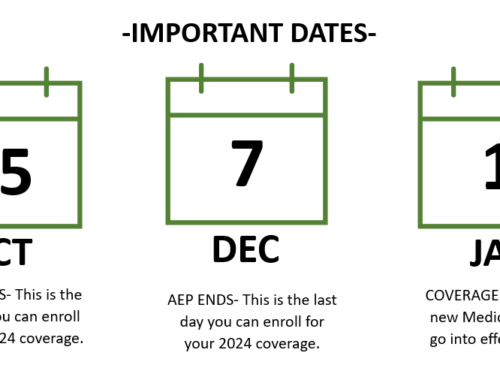Comparing Medicare Advantage vs
Original Medicare
Original Medicare
Posted by Morgan Fisher
Serving Cedar Rapids, Iowa, and Surrounding Areas.
Comparing Medicare Advantage vs. Medicare Supplement: Which is Right for You?
As you approach the age of 65, you become eligible for Medicare, the federal health insurance program for seniors. However, navigating the different parts and coverage options of Medicare can be overwhelming, and one common decision you’ll need to make is whether to enroll in a Medicare Advantage plan or a Medicare Supplement plan. Today, we will compare Medicare Advantage and Medicare Supplement plans to help you understand the key differences and make an informed decision on which may be right for you.
Medicare Advantage Plans
Medicare Advantage (Part C) plans are offered by private insurance companies approved by Medicare. These plans provide an alternative to Original Medicare (Part A and Part B) and typically include drug coverage (Part D) as well. Medicare Advantage plans often have lower premiums compared to Medicare Supplement plans, and some plans may even have a $0 premium. However, they may also have copayments, deductibles, and network restrictions.
Here are some key features of Medicare Advantage plans: 
- Network restrictions: Medicare Advantage plans often have a network of doctors, hospitals, and other healthcare providers that you must use in order to get full coverage. This means that you may need referrals to see specialists and may be limited to providers within the network.
- Drug coverage: Most Medicare Advantage plans include prescription drug coverage (Part D). However, not all plans cover all prescription drugs, and formularies (the list of covered drugs) may change annually. It’s important to review the drug coverage and make sure your medications are covered before enrolling in a Medicare Advantage plan.
- Additional benefits: Medicare Advantage plans may offer additional benefits beyond what is covered by Original Medicare, such as dental, vision, and hearing coverage, as well as wellness programs and gym memberships.
- Out-of-pocket maximum: Medicare Advantage plans have an annual out-of-pocket maximum, which limits your total out-of-pocket expenses for covered services. Once you reach this maximum, the plan will generally cover 100% of your covered costs for the rest of the year.
Medicare Supplement Plans
Medicare Supplement (Medigap) plans are also offered by private insurance companies and are designed to work alongside Original Medicare. These plans help fill the “gaps” in coverage left by Medicare, such as deductibles, copayments, and coinsurance. Medicare Supplement plans are standardized and are labeled with letters (e.g., Plan F, Plan G, Plan N), with each letter corresponding to a specific set of benefits. However, not all plans may be available in all states.
Here are some key features of Medicare Supplement plans:
- No network restrictions: Unlike Medicare Advantage plans, Medicare Supplement plans allow you to see any doctor or specialist who accepts Medicare, without needing referrals and without network restrictions. This gives you more flexibility and freedom to choose your healthcare providers.
- No drug coverage: Medicare Supplement plans do not include prescription drug coverage. If you want drug coverage, you will need to enroll in a standalone Medicare Part D plan.
- Standardized benefits: Medicare Supplement plans are standardized by the federal government, which means that the benefits of each plan are the same, regardless of the insurance company offering the plan. However, premiums may vary among insurance companies.
- Higher premiums: Medicare Supplement plans generally have higher premiums compared to Medicare Advantage plans. However, they may offer more predictable out-of-pocket costs and fewer surprises in terms of copayments and deductibles.
To determine which option is best for you, consider the following factors:
- Healthcare Needs: Assess your current and anticipated healthcare needs, including prescription medications and preferred doctors or specialists. If you have specific healthcare requirements or see many specialists, a Medigap plan’s flexibility may be more suitable.
- Budget: Evaluate your financial situation and determine how much you can comfortably afford in terms of monthly premiums, deductibles, and copayments. Compare the overall costs of Medigap and Medicare Advantage plans based on your expected healthcare utilization.
- Personal Preferences: Consider your preference for choice and flexibility in healthcare providers. Determine whether having additional benefits like dental, vision, or prescription drug coverage is important to you.
Key Takeaways: Choosing between Medicare Supplement (Medigap) and Medicare Advantage (Part C) plans requires careful consideration of your healthcare needs, budget, and personal preferences. Medigap plans provide more flexibility and predictable costs but require a separate Part D plan for prescriptions. Medicare Advantage plans provide drug coverage as well as additional benefits but require copays and network restrictions.
For a free comparison or to learn more, contact a local Cedar Rapids Iowa retirement expert today.
Investment advisory services are offered through Fusion Capital Management, an SEC registered investment advisor. The firm only transacts business in states where it is properly registered or is excluded or exempted from registration requirements. SEC registration is not an endorsement of the firm by the commission and does not mean that the advisor has attained a specific level of skill or ability. All investment strategies have the potential for profit or loss.




